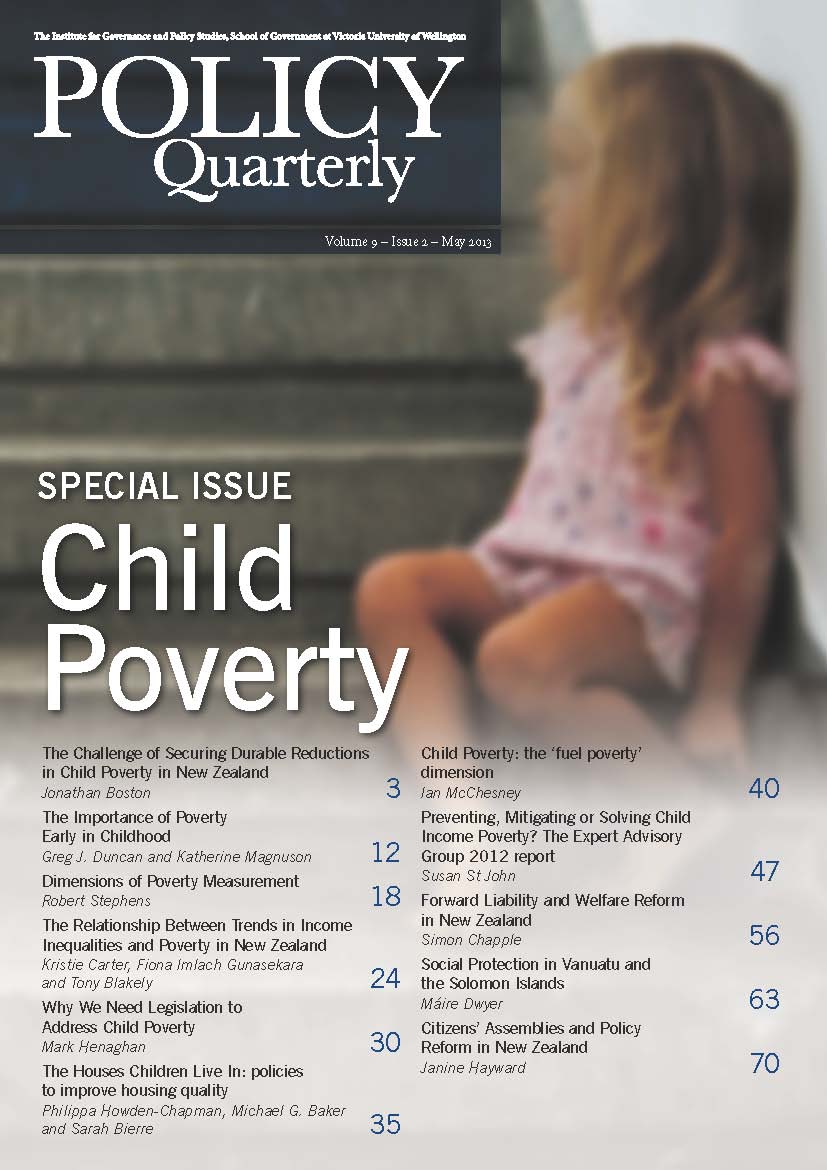Citizens’ assemblies and policy reform in New Zealand
DOI:
https://doi.org/10.26686/pq.v9i2.4446Keywords:
Electoral Commission, electoral reform, electoral referendum, Mixed Member Proportional (MMP) review, first past the post (FPP), preferential voting (PV), single transferable vote (STV), supplementary member (SM), non-entrenched constitution, Electoral Finance BillAbstract
In 2011 New Zealand held a referendum on the future of its voting system for general elections. Following the referendum, the current voting system was retained, and the Electoral Commission reviewed the system and made recommendations for change in late 2012. In early 2013 the government’s response to those recommendations is still awaited. Recognising the importance of this process, this article considers an alternative approach to electoral reform, drawing on the experiences of Canada’s and Holland’s use of citizens’ assemblies in the electoral policy-making process. The article considers the merits and limitations of citizens’ assemblies for electoral reform, particularly in the New Zealand context. It proposes the form and function of a citizens’ assembly on electoral reform in New Zealand to complement the reform process. Overseas experience demonstrates that, with some caveats, a citizens’ assembly remains a possibility for electoral reform and other constitutional policy change in New Zealand in the future.
Downloads
Downloads
Published
Issue
Section
License
Permission: In the interest of promoting debate and wider dissemination, the IGPS encourages use of all or part of the articles appearing in PQ, where there is no element of commercial gain. Appropriate acknowledgement of both author and source should be made in all cases. Please direct requests for permission to reprint articles from this publication to Policy-Quarterly@vuw.ac.nz.



